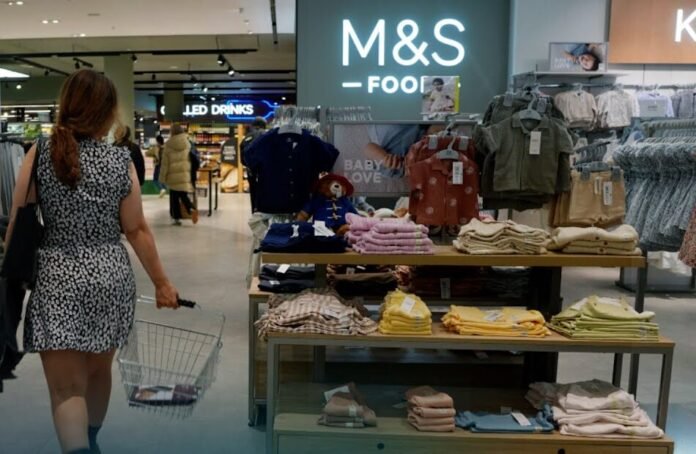Marks & Spencer reveals cyber attack linked to third-party breach will cost £300m, disrupt sales and supply, with rivals Co-op and Harrods also affected.
Marks & Spencer has confirmed that a recent cyber attack, caused by what it described as “human error,” is expected to cost the company around £300 million, severely disrupting its operations and denting profits. The breach, which occurred over the Easter weekend, compromised the retailer’s IT systems via a third-party vulnerability, leading to widespread issues including halted online orders, contactless payment failures, and empty shelves in stores.
Chief Executive Stuart Machin explained the cyber attack was not due to under-investment or negligence in security but rather a “human error” that hackers exploited on an “unlucky day.” He emphasised the incident is a stark reminder of the vulnerabilities all businesses face in the current cyber threat landscape.
M&S has not resumed online sales since the attack, with experts estimating losses of up to £3.5 million per day. The company’s fashion, home, and beauty divisions have been hit particularly hard, with sales and profits “heavily impacted.” Meanwhile, food sales suffered from supply issues, though these are now reportedly improving.
The retailer is working to mitigate the financial damage through cost management and insurance, though the group’s operating profits are expected to take a significant hit this year. Despite the disruption, Machin reaffirmed the firm’s commitment to its long-term growth strategy, viewing the incident as a catalyst to accelerate its transformation plans.
This cyber attack is not an isolated incident. M&S has been in communication with other affected businesses, including the Co-op and Harrods, which have also been targeted by hackers in recent weeks. Both rivals have faced challenges such as data breaches, payment processing issues, and stock shortages.
Notably, the Co-op disclosed that a significant volume of customer data had been stolen and continues to grapple with supply disruptions in some locations. Similarly, Harrods has had to take defensive measures against cyber threats that jeopardise its operations.
Security experts have linked these attacks to hacking groups like Scattered Spider, known for targeting retail and supply chain networks. In a worrying trend, a major UK food distributor recently reported being held to ransom by cyber criminals, highlighting the growing scale and complexity of attacks facing the retail sector.
Cabinet Office minister Pat McFadden warned that this wave of cyber attacks should serve as a “wake-up call” for UK businesses and industry leaders to bolster their defences and improve incident preparedness.
M&S confirmed last week that customer data was stolen in the breach, though payment details and passwords were not compromised. The company continues to work with law enforcement and cybersecurity specialists to investigate the attack and strengthen its systems against future threats.
The disruption to M&S comes at a challenging time for the retail giant, already navigating a fiercely competitive market and changing consumer behaviours. The impact of this cyber incident adds further pressure but also underlines the importance of digital resilience in the era of increasing cyber warfare.
As M&S aims to recover from the costly breach, its leadership insists the firm will emerge stronger, with lessons learned and renewed focus on innovation and customer service. The retail sector as a whole, however, faces a difficult road ahead as cyber criminals continue to adapt and target critical business infrastructure.
